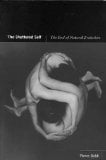 The Shattered Self: The End of Natural Evolution
The Shattered Self: The End of Natural Evolution
by Pierre Baldi
MIT Press, ISBN 0262025027
This is an excellent survey of contemporary trends in molecular biology and biotechnology, including cloning, now a front-page issue for humankind as well as sheep. Baldi discusses the ethical and social implications of such developments by systematically presenting the technological context, especially computers, to explain what he calls fiction science.
A distinctive feature of his approach, and a very eyeopening one, is his back-of-the-envelope calculations, more properly called order-of-magnitude physics, which help the reader cope with the bewilderingly large numbers involved. These figurings are part of the main thrust of the book, which concerns the ways in which our traditional notions of self are undermined, re-drafted or trashed by the calculable possibilities confronting us. Thus, he reckons, “the external self is a relatively easy to define quantity. It can be estimated to lie within a comfortable range of 10^18 bits, a size undoubtedly within reach of computer storage technology.”
When Baldi writes about music, a matter of professional interest to this reviewer, he strangely omits to make such calculations, preferring instead to speculate about manipulating genes to extend our auditory range, to get around “the boredom of twelve-note melodies”. Yet, as John Barrow recounts in The Artful Universe, Mozart once wrote a combinatorial waltz offering 2 x 10^11 possible waltzes, while Harvard’s David Mutcer programmed a synthesizer to create 8850 possible melodies. Baldi opines that performing musicians will be phased out in a century or so, in favour of some kind of global mega-system, but kindly offers us another job: playing the genome so that our pattern-recognizing skills could help identify gene regions.
No need for musicians to feel victimized, though: “Human intelligence is a relatively recent phenomenon, only a few thousand generations old, and it has not been doubling its capacity at each generation, as computers do. One day it might be viewed as a historically interesting, albeit peripheral, special case of machine intelligence.”
Paul Taylor



